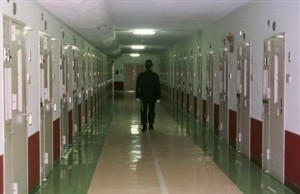Japan has the oldest population in the world, with at least 27 per cent being over the age of 65. Yet the country is facing an unprecedented problem.
A report from Bloomberg states that at least one in five women in Japanese prisons are a senior citizen, with at least nine out of ten of them committing minor offences like shoplifting.
The reason for this isn’t down to an unusual crime wave. Instead, it’s something far more socially-worrying for Japan.
Between 1980 and 2015, the number of elderly people living by themselves in Japan increased more than sixfold to nearly 6 million.
In 2017, a Tokyo government survey found that more than 50 per cent of seniors who shoplifted lived alone and 40 per cent didn’t have a family or relative to turn to.
For decades prior to this trend, it was a tradition for families and communities to care for their older citizens, but a lack of resources is making that harder to do so.
With the older population feeling more and more isolated as a result of this, women especially have turned to a life of crime in the hope that prison will provide them with a refuge and a home.
Yumi Muranaka, head warden of Iwakuni Women’s Prison, near Hiroshima, told Bloomberg:
They may have a house. They may have a family. But that doesn’t mean they have a place they feel at home.
They feel they are not understood. They feel they are only recognised as someone who gets the house chores done.
Elderly women, more so than men, are also considered to be more economically vulnerable, with nearly half of the female population over 65 living in poverty.
Prison has provided these women with a chance to escape their domestic lives. Bloomberg spoke to several inmates with one, simply known as Ms. T, giving a particularly harrowing account of how her life deteriorated.
The 80-year-old is quoted as saying:
My husband had a stroke six years ago and has been bedridden ever since. He also has dementia and suffers from delusions and paranoia.
It was a lot to take care of him physically and emotionally because of my old age. But I couldn’t talk about my stress with anyone because I was ashamed.
I was imprisoned for the first time when I was 70. When I shoplifted, I had money in my wallet. Then I thought about my life.
I didn’t want to go home, and I had nowhere else to go. Asking for help in prison was the only way.
My life is much easier in prison. I can be myself and breathe, however temporarily.
My son tells me I’m ill and I should be hospitalised in a mental institution and take it easy. But I don’t think I’m ill. I think my anxiety drove me to steal.
While in prison the women are assigned a specialist worker who will assist them with bathing and toilet tasks during the day, yet at night these duties are handled by guards.
For some of these correctional officers, their day-to-day jobs are now closer to that of a nursing home attendant, with some having to deal with issues like incontinence.
Satomi Kezuka, an officer at Tochigi Women’s Prison, added:
They [the women] are ashamed and hide their underwear.
I tell them to bring it to me, and I will have it washed.
Yet, this extra work creates further problems. Care for elderly prisoners saw medical costs in prisons pass the 6 billion yen mark in 2015, which is an 80 per cent increase since 2005.
Furthermore, more than a third of female correctional officers quit their jobs within three years, leading to an obvious shortage of staff.
Japan’s government nor their private sector are yet to establish a rehabilitation program for the women affected by these issues, but they are attempting to do something.
In 2016, a law was passed that would ensure that an ex-convict would receive help from Japan’s welfare and social service systems.
In addition to this, prosecution offices and prisons are working with government agencies in order to help the women who find themselves in this unfortunate situation.
Source: indy100
Ask me anything
Explore related questions





